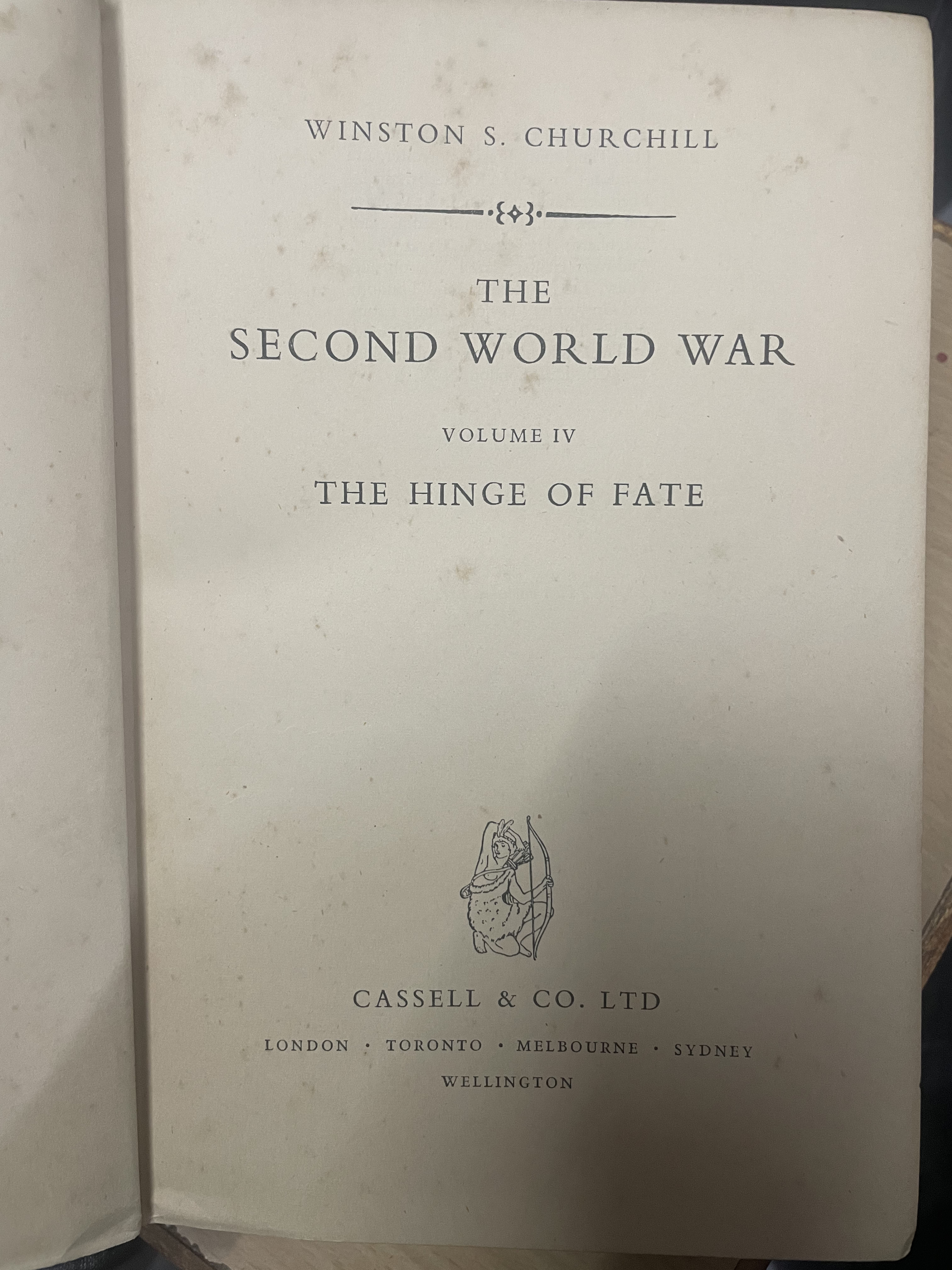The Second world war vol VI

About
Summary
Exquisite
TOC
Details
Related
URL
Images
Overview
The Second World War: Volume VI, Triumph and Tragedy, authored by Winston Churchill, concludes his comprehensive historical account of World War II, covering events up to July 1945. Churchill, a British statesman, orator, and author, served as the Prime Minister of the United Kingdom during the war, rallying the British people and leading the country. This volume, like the others in the series, blends personal memoir with historical narrative, providing a unique perspective from a key participant in the war's direction. Churchill himself acknowledged that his work was a contribution to history rather than an objective, academic account.
Importance of Book
Churchill's The Second World War is considered a seminal and iconic work, vital for understanding the war. As a former prime minister and a leading figure during the war, Churchill possessed privileged access to official documents and his own notes, giving him a unique standpoint from which to write. His history offers insights into the British war effort and his personal experiences during the conflict. Winning the Nobel Prize in Literature in 1953, the book is acknowledged as a compelling and magnificent reconstruction of the war. Richard Langworth describes the six-volume epic as indispensable reading for anyone who seeks a true understanding of the war that made us what we are today.
Key Themes
Resolution, Defiance, Magnanimity, and Goodwill: Churchill labeled these words as the moral of the work, reflecting his view on how to conduct oneself in war, defeat, victory, and peace.
The British War Effort: The book primarily focuses on the British perspective and war effort, with other theaters of war largely serving as background.
The Danger of Appeasement: Churchill's earlier volumes, particularly The Gathering Storm, highlight the dangers of appeasing dictators, arguing that it only leads to further escalation and conflict.
Personal Perspective: Churchill wrote the history from his personal point of view, which is both a strength and a limitation. While it provides unique insights, it also reflects his biases and inability to reveal certain sensitive information.
Cultural Significance
Churchill's The Second World War has significant cultural value due to its author's prominent role in the conflict and his engaging writing style. The series was a major commercial success in both Britain and the United States. Churchill's work has contributed to shaping public understanding of the war and perpetuating his legacy as a wartime leader.
Effects on Society
The Second World War had a notable impact on Britain and other societies by providing a comprehensive account of the war from a leading participant's perspective. The book bolstered Churchill's image as a strong leader and helped shape the narrative of the war for generations to come. However, it's important to acknowledge that Churchill's account is not without its limitations and biases. As more archives have opened, deficiencies in the work have become apparent, particularly regarding his inability to disclose ongoing military secrets and his focus on the British war effort. Some critics have also noted that Churchill's Great Man view of history overemphasizes the role of individual leaders like Hitler and Mussolini while downplaying other factors.
Table of Content
\"The Second World War, Volume VI: Triumph and Tragedy\" by Winston Churchill, published in 1954, is the final volume in Churchill\'s comprehensive history of World War II. The book covers the final stages of the war and the aftermath.Here is a general overview of the table of contents for the 1954 edition:Chapter 1: The Atlantic CharterDiscusses the origins and implications of the Atlantic Charter, outlining the goals and principles agreed upon by the Allied leaders.
Chapter 2: The Big ThreeFocuses on the relationship and interactions between the leaders of the United States, the United Kingdom, and the Soviet Union, including key meetings and decisions.
Chapter 3: The Campaign in the PacificCovers the significant military campaigns in the Pacific theater, including the strategies and outcomes of major battles.
Chapter 4: The Campaign in EuropeExamines the final stages of the European campaign, including the Allied advances and the eventual defeat of Nazi Germany.
Chapter 5: The United NationsDiscusses the formation and early activities of the United Nations, reflecting on its role in post-war diplomacy and international relations.
Chapter 6: The Post-War SettlementReviews the political and territorial changes that occurred as a result of the war, including the reorganization of Europe and the establishment of new borders.
Chapter 7: The Legacy of the WarReflects on the long-term consequences of the war, including its impact on international politics, economic conditions, and global relations.
Chapter 8: The Triumph of the AlliesFocuses on the victory of the Allied forces and the celebrations of their success, as well as the challenges faced in the immediate post-war period.
Chapter 9: The Tragedy of WarAddresses the human cost of the war, including the loss of life, destruction, and suffering experienced during and after the conflict.
Title
The Second world war vol VI
Author
Winston Churchill
Name of Publisher
Cassell & Co Ltd London
Publish Date
1954
Subject
Churchill\\\'s comprehensive history of World War II
Vintage
1948-2000
Edition
First
Number of Pages
917
Category
Biography
Sub Category
NA
Rarity
RARE
